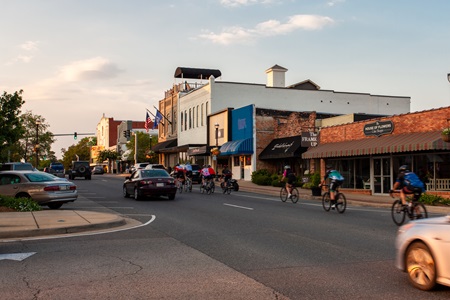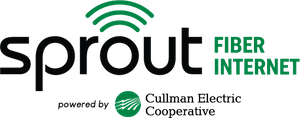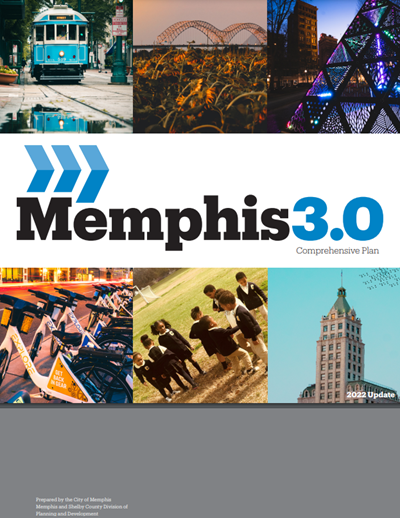
Fast, affordable Internet access for all.

Ruston, Louisiana officials say they’re throwing in the towel, and will be selling a city-owned fiber network that has existed for the better part of 15 years.
City officials say they finalized the decision at a city council meeting earlier this month, though they’d already sent out a Request for Proposal (RFP) for potential bidders as early as February.
The network was first constructed back in 2010, and consists of over 136 miles of fiber connecting roughly 300 area businesses. The network doesn’t currently service residential customers, though that could change under new ownership.
The city had briefly considered expanding the network in 2018, but scrapped the idea two years later. Ruston Mayor Ronny Walker tells the Lincoln Parish Journal that numerous factors went into the city’s decision, including new broadband construction currently being funded by a historic new wave of federal broadband infrastructure subsidies.
“Six years ago we did a study and thought about getting into the private/home internet service,” Walker said. “We were moving along that track and then four years ago, when the federal government starting putting so much money into broadband across the United States — billions of dollars to the state of Louisiana — that’s when we decided as a staff it was time to exit that business because there were so many other large companies doing that.”

Like countless communities, Ruston sees little meaningful broadband competition. Cable giant Optimum enjoys a monopoly over broadband access across much of the city, with AT&T DSL and fiber scattered across some neighborhoods. This muted competition has resulted in spotty access, slow speeds, high prices, and substandard customer service.
Joplin, Missouri has announced a new broadband public-private partnership (PPP) with ALLO Fiber that should help boost competition and lower rates across the city of 52,000. The partnership poses a particular challenge to regional cable giant CableOne, which currently enjoys a monopoly over broadband access across a whopping 83 percent of the city.
Outside of a $5 million city contribution to harden key city infrastructure, the network will be entirely built, funded, owned and operated by ALLO.
The origins of the project extend back to 2019, when the city first began exploring efforts to modernize Joplin infrastructure under a “smart city” initiative. By 2021 the city had hired Finley Engineering and CCG Consulting to conduct a feasibility study exploring the technical and financial details of a city-owned fiber network.
Fed up by expensive and substandard broadband access and buoyed by public support, in 2022 the city issued a request for proposal (RFP) for a partner that would help build such a network. The city received nine responses to the RFP. Last month, the Joplin City Council approved an ordinance by a vote of 8-1 selecting ALLO as the city’s primary partner.

“ALLO really stood out because they were coming to our market without asking us for any assistance,” Troy Bolander, Joplin’s head of Planning, Development & Neighborhood Services, recently told Fierce Network.
In the wake of the new rules issued by the Federal Communications Commission (FCC) to prevent digital discrimination, digital equity advocates from California to Cleveland are leveraging the new federal rules to spur local action.
In Los Angeles, city leaders have passed an ordinance to combat what advocates say are discriminatory investment and business practices that leave historically marginalized communities without access to affordable high-quality Internet. Similar efforts to mobilize communities and local officials are underway in Oakland and Cleveland.
In November 2023, the FCC codified rules to prevent digital discrimination, outlining a complaint process whereby members of the public can offer evidence of digital discrimination being committed by Internet service providers (ISPs). Though the FCC order does not outline local policy solutions, nor does it empower localities to carry out enforcement of the federal rules, it has the potential to open up conversations between local advocates and elected officials about new ordinances, stronger enforcement of existing ones, or public investment to facilitate competition and the building of better broadband networks.
Los Angeles First City in Nation To Officially Define Digital Discrimination At Local Level
The local organizing work behind the proposed ordinance in LA dates back to 2022 when digital equity advocates began to document inequitable broadband access across the county.
A looming new bill by Republican Kentucky State Senator Gex Williams could undermine decades of broadband progress made in the state’s capital city by a popular locally-owned utility, Frankfort Plant Board (FPB).
Home to 28,000 Kentuckians, local residents and utility officials in Frankfort are incensed at the bill, which they believe will unnecessarily result in higher rates, fewer jobs, and less broadband competition overall.
Williams is circulating a bill in the Kentucky state legislature that, if passed, would force FPB to sell its broadband division to a private-sector company and subject it to more stringent oversight requirements. In guest editorials circulated in the local press, Williams insists his goal is to “rein in” the FPB, which he deems part of a “runaway” government that lacks accountability.
But there’s no evidence for Williams’ allegations of limited accountability, and locals and activists alike believe that the legislator is simply running interference for regional broadband monopolies upset by the added competition created by the popular, publicly-owned utility.
Another Community-Owned Solution Addressing Market Failure
Like many local U.S. communities, Frankfort sees a notable dearth of meaningful broadband competition, resulting in patchy broadband coverage, slow speeds, high prices, and abysmal customer service. Enter the Frankfort Plant Board, which has been deploying affordable fiber access across the community under the NEXTBAND brand.
Knoxville, Tennessee's Knoxville Utility Board (KUB) says it has completed the first phase of its ambitious broadband deployment, bringing affordable fiber access to more than 50,000 premises in this city of 192,000 – many for the very first time.
When we last wrote about KUB back in 2021, the city's utility had just received approval to build what will eventually be the biggest municipal broadband network in the U.S.
All told, the $702 million project, known as KUB Fiber, aims to deliver affordable fiber to 210,000 households across KUB’s 688-square-mile service area, taking between seven and ten years to complete.
KUB says that the first phase of fiber deployment involved the installation of more than 1,100 miles of fiber infrastructure. Upgraded users have the option of three tiers of service: symmetrical gigabit per second (Gbps) service for $65 a month; symmetrical 2.5 Gbps service for $150 a month; and symmetrical 10 Gbps service for $300 a month.
KUB’s service tiers do not come with usage caps or long-term contracts. Unlike many municipal operations, KUB is also offering locals the option of bundling television service.
KUB was driven to expand access after more than a decade of local frustration at the slow speeds, high prices, and spotty coverage caused by a notable lack of competition between regional telecom monopolies, AT&T and Comcast (Xfinity). Both companies have attempted to lock down customers via long-term contracts ahead of the network’s completion.
As one local resident said:
“Comcast thanked me for being a customer for 23 years, but it's not because I've had the option to go anywhere else. They have had 23 years to fix these problems and they haven't."
Cullman, Alabama-based Cullman Electric Cooperative says it is launching a new phase of fiber deployment after receiving a $7 million grant to bring affordable fiber access to long-neglected Cullman and Winston counties.
The financing was made possible by the Alabama Broadband Accessibility Fund (ABAF), funded by the 2021 American Rescue Plan Act (ARPA). The state has already dedicated more than $82 million in funding for Alabama broadband deployments, bringing broadband access to 72,000 currently unserved residents.

Cullman’s $7 million portion will bring affordable fiber access to 1,300 families. Known as Sprout Fiber Internet, Cullman currently offers residential customers symmetrical 300 Mbps (megabit per second) service for $60 a month; symmetrical 1 Gbps (gigabit per second) service for $80 a month, and symmetrical 2 Gbps service for $120 a month.
That’s significantly faster and cheaper service than is currently offered by any of the dominant private telecom monopolies in Cullman (predominantly AT&T or Charter/Spectrum), without usage caps, hidden fees, or long-term contracts.
Fort Worth, Texas, (est pop. 956,000) has struck a $7.5 million, 34-year contract with Dallas-based Sprocket Networks to construct a new 300-mile fiber optic backbone to shore up city municipal communications needs, expand affordable access to marginalized neighborhoods, and boost local economic development.
City officials say construction crews are expected to begin work sometime in the next three to six months, with the full network construction expected to cost $65 million and take three years to complete.
Services will first be made available to nine target neighborhoods (including Las Vegas Trail, Como, Marine Creek, Stop Six, Rosemont and Ash Crescent) on a rolling basis. Sprocket Networks will own the finished fiber network.
“This partnership was entered into with Sprocket with the hopes of eventually getting to universal service in Fort Worth,” Fort Worth IT Solutions director Kevin Gunn told ILSR in a phone interview. “We want the gold standard fiber optic connectivity: 100 megabits symmetric and up available at every doorstep, whether that's a senior family, multifamily or commercial.”
Gunn told ILSR that the city’s initial payment of $7.5 million to Sprocket consists of $4.5 million in American Rescue Plan Act (ARPA) funds, and $3 million from the North Central Texas Council Of Governments, which has allocated some of its transportation budget to broadband improvements the agency will benefit from.
In response to COVID era broadband inequities, the city of Fort Worth last year expanded free Wi-Fi access to 40,000 largely underserved city residents. Gunn indicated that those connections will be slowly phased out as the city transitions to fiber.
In 2021, California passed Senate Bill 156, an ambitious plan allocating $6 billion to shore up affordable broadband access throughout the state.
Among the most notable of the bill’s proposals was a plan to spend $3.25 billion on an open-access statewide broadband middle-mile network backers say could transform competition in the state.
An additional $2 billion has also been earmarked for last mile deployment. Both components will be heavily funded by Coronavirus relief funds and federal Broadband Equity, Access, and Deployment (BEAD) subsidies as well as California State Government grants – with all projects to be finished by December 2026 as per federal funding rules.
But while California’s proposal has incredible potential, activists and digital equity advocates remain concerned that the historic opportunity could be squandered due to poor broadband mapping, a notable lack of transparency, and the kind of political dysfunction that has long plagued the Golden State.
Massive Scale, Big Money, Endless Moving Parts
Still, California’s prioritization of open access fiber networks could prove transformative.
Data routinely indicates that open access fiber networks lower market entry costs, boost overall competition, and result in better, cheaper, faster Internet access. Unsurprisingly, such networks are often opposed by entrenched regional monopolies that have grown fat and comfortable on the back of muted competition.
New England residents have been complaining about Verizon’s lack of meaningful fiber upgrades for the better part of the last two decades, prompting a steady parade of interest in community owned and operated fiber networks in states like Massachusetts.
But some of these community broadband efforts, such as West Springfield’s plan to deliver affordable fiber access to every city resident, are still being hampered by Verizon.
In 2021 the city (est. pop. 28,000) announced it would be partnering with Westfield Gas and Electric, the publicly owned utility in Westfield, Massachusetts, which has built and operates fiber networks in nearly two dozen communities in the Berkshires. The end result: Westfield Gas and Electric's broadband subsidiary Whip City Fiber plans to deliver West Springfield residents symmetrical gigabit fiber for $75 a month, without long term contracts or onerous hidden fees.
But efforts to launch a $1.8 million pilot project have been on hold thanks to ongoing delays by Verizon and Eversource to prepare local utility poles for fiber attachment, West Springfield Chief Technology Officer Stephanie Straitiff tells local news outlet The Reminder.
Memphis Mayor Jim Strickland has introduced an ambitious new plan to incentivize private telecom providers to deliver affordable fiber to 85 percent of the Tennessee city of 633,000. The project, part of the city’s Memphis 3.0 master plan, will spend more than $700 million to expand broadband in a city where less than a quarter of residents–most of them wealthy–have access to next-generation fiber.
On September 23, city leaders introduced a new city ordinance amendment establishing new, streamlined permitting and fee requirements. Their goal: to incentivize companies willing to expand fiber optic broadband to at least 60 percent of Memphis’ residential and business premises and 60 percent of all existing low-income premises.
Not long after, city leaders unveiled more details about their "Smart Memphis Fiber" effort. After issuing an RFP last year, Memphis officials say they’ve struck a partnership with Paris-based Meridiam and Blue Suede Network to build a $700 million fiber optic network with an eye on eventually reaching 85 percent of the total Memphis population.

“City Government will incentivize any interested company by reducing our costs through reductions in permitting fees and right-of-way fees,” Strickland said in a recent presentation before the city council. “Additionally, we will streamline our process to allow a company to get to work faster. We are also putting our own skin in the game.”